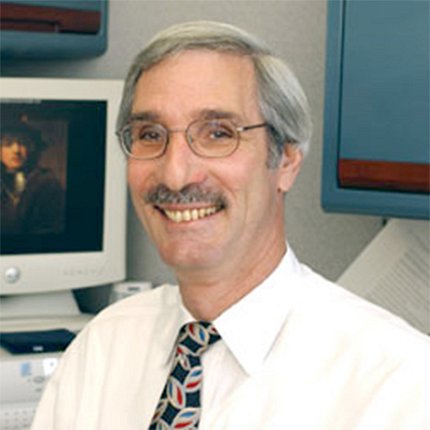NIMH Neuroscientist Kaplan Remembered

Dr. Barry Kaplan, a neuroscientist and intramural principal investigator at the National Institute of Mental Health (NIMH), died Apr. 15. He had progressive supranuclear palsy.
Born in the Bronx, N.Y., Kaplan received his B.A. and M.S. in biology from Hofstra University before earning a Ph.D. in cell and developmental biology from Cornell University College of Medicine (now Weill Cornell Medicine) in 1974. He completed his postdoctoral studies at the Andrus Gerontology Center of the University of Southern California in 1976. He was a professor of psychiatry and director of the Molecular Neurobiology and Genetics Program of the Western Psychiatric Institute and Clinic at University of Pittsburgh Medical Center (UPMC), where he made significant contributions to the understanding of the molecular and genetic basis of neuropsychiatric and neurodegenerative disorders.
Kaplan served on the faculties of the Cornell University Medical College and UPMC before joining the NIMH Intramural Research Program in 1997.
In NIMH’s IRP, he was inaugural director of the Office of Fellowship Training, where he created the first training office on the NIH campus and was responsible for development of a multidisciplinary neuroscience training program for hundreds of postdoctoral fellows, clinical research associates, graduate students, postbaccalaureate fellows and summer students.
He was chief of the section on molecular neurobiology from 1998 until 2018. His dedication to mentoring young scientists was unparalleled, inspiring countless individuals to pursue careers in medicine and neuroscience.
Kaplan served on the editorial boards of numerous professional journals and as a member of several NIH scientific review committees and advisory boards, where he contributed to development of graduate programs, evaluation of research proposals and funding of scientific projects.
In his research, Kaplan focused on the subcellular compartmentalization of neuronal gene expression, using the giant axon of the squid, primary sympathetic neurons and transgenic animal models. His work has led to significant advances in understanding the mechanisms of axonal RNA transport, neuronal microRNA function and synaptic protein synthesis. Kaplan’s research has provided fundamental insights into the molecular basis of neuronal growth and development.
“Barry was a dedicated scientist, a compassionate mentor, and a beloved friend and colleague to many,” said NIMH Scientific Director Dr. Susan Amara, in an email to NIMH staff. “He will be deeply missed by his family, friends, students and the countless individuals whose lives he touched through his work. His legacy will live on through the many scientists he trained and the numerous contributions he made to the field of neuroscience.”
Kaplan is survived by his wife Annie Kaplan, son Raymond, daughter-in-law Glennyce and grandson Sebastian.
